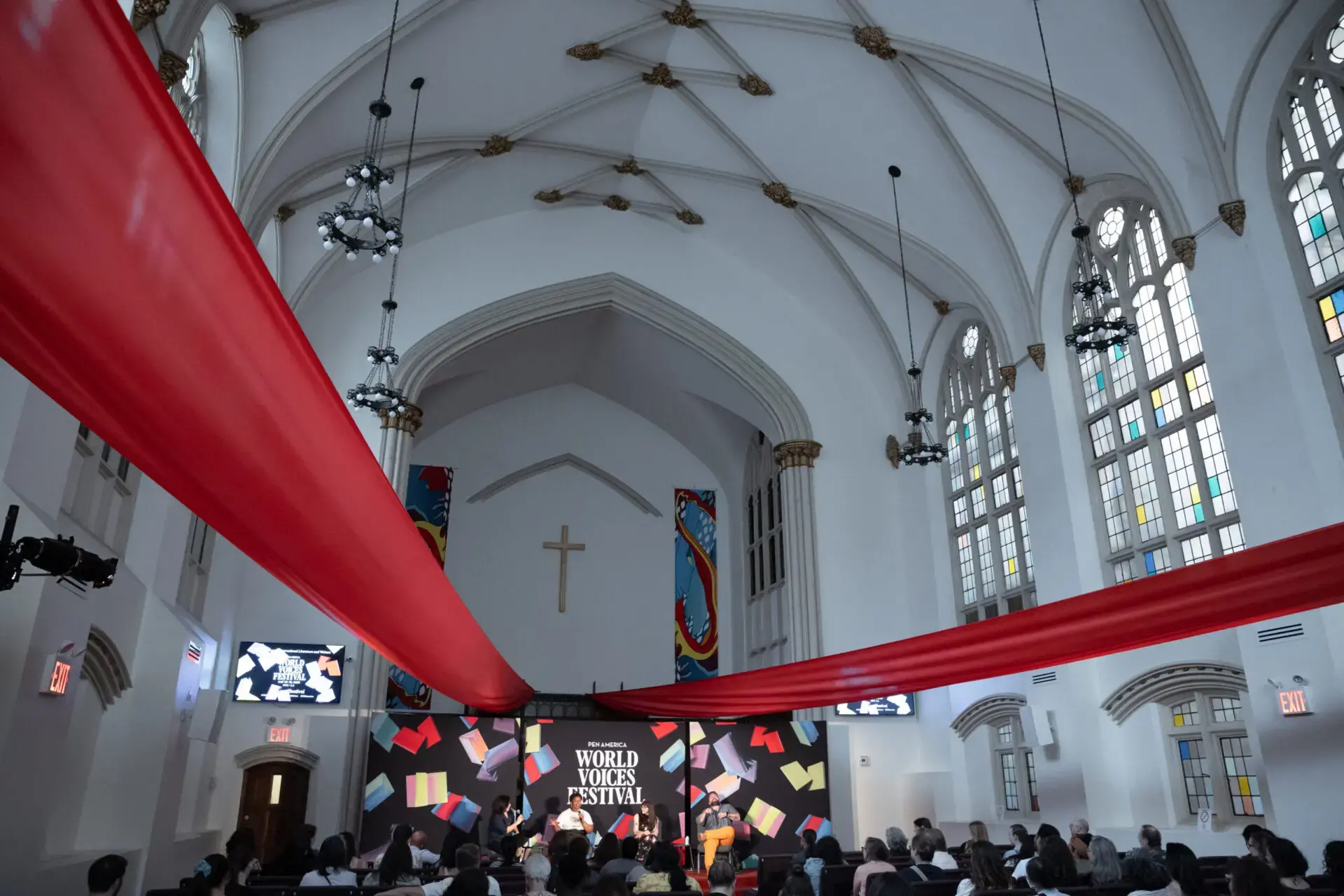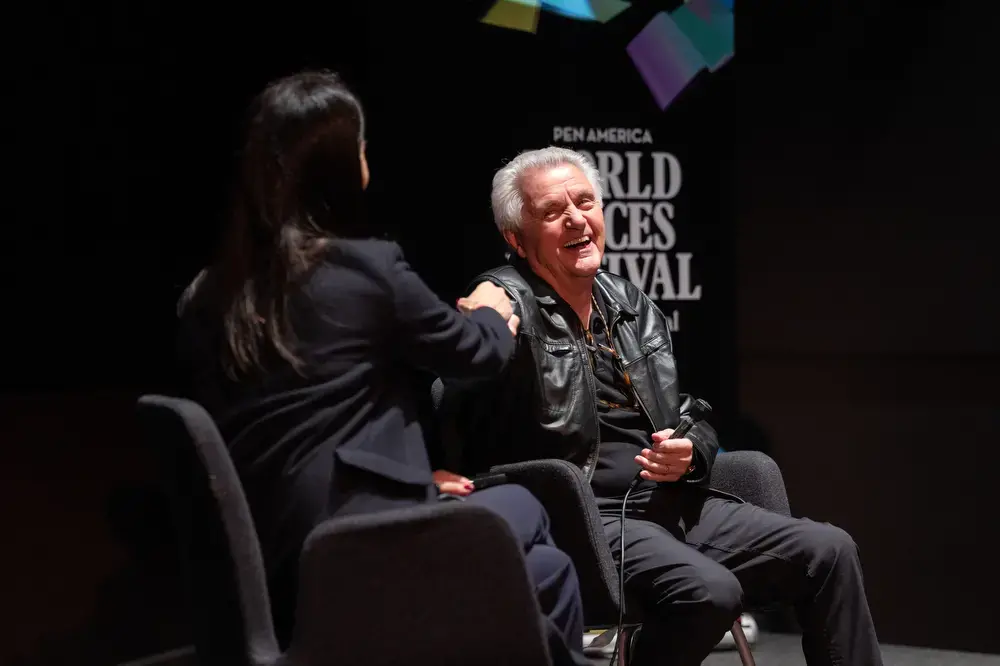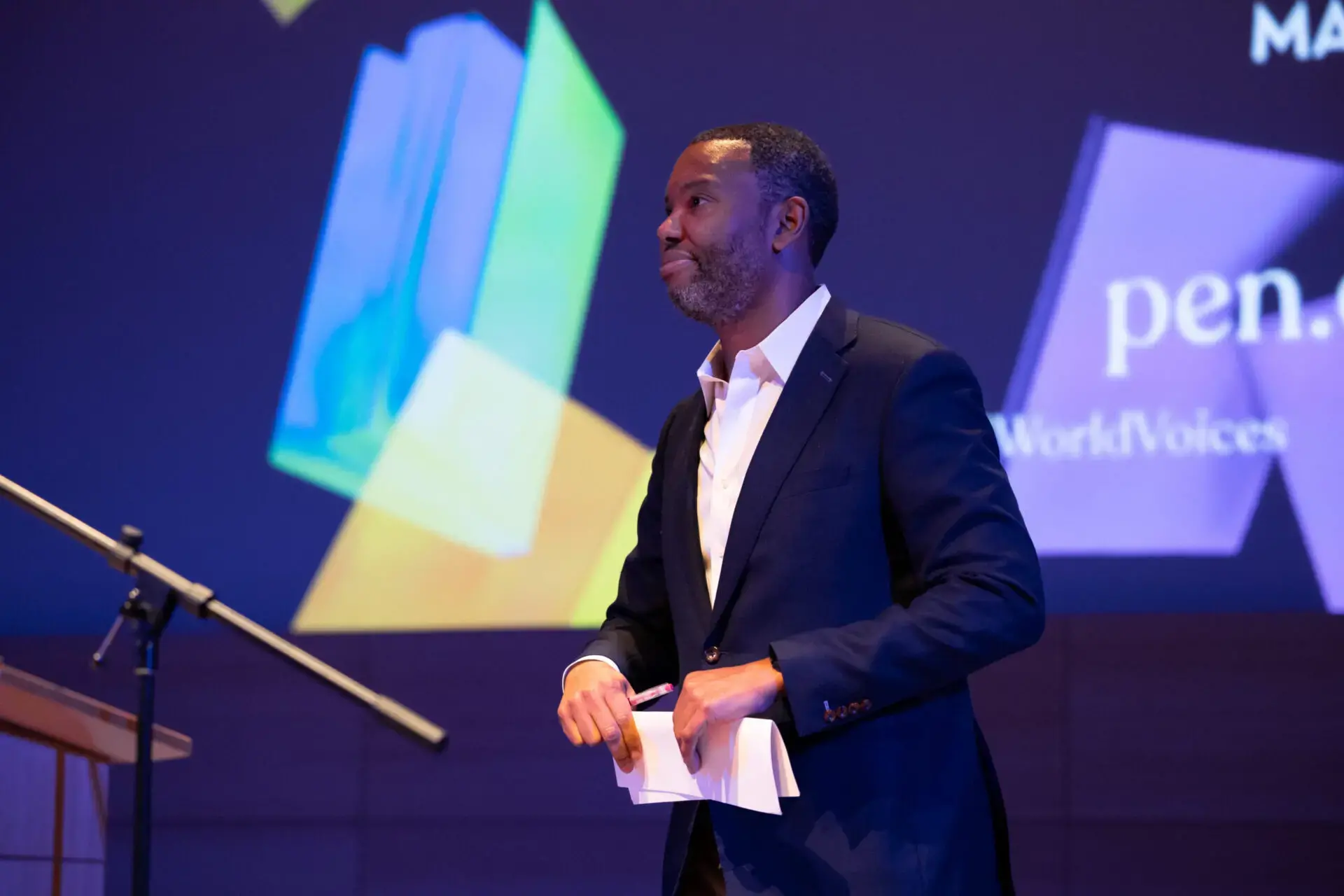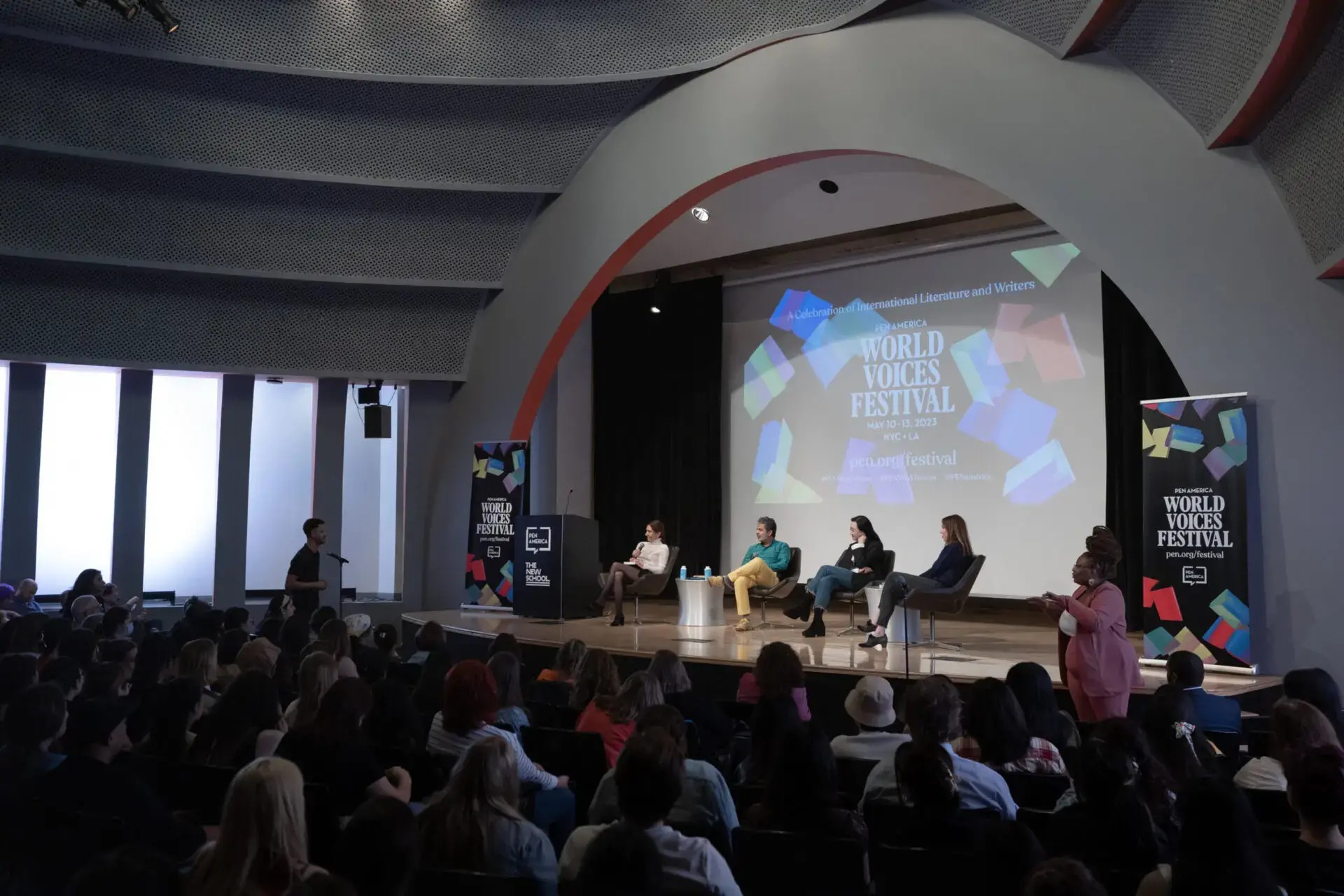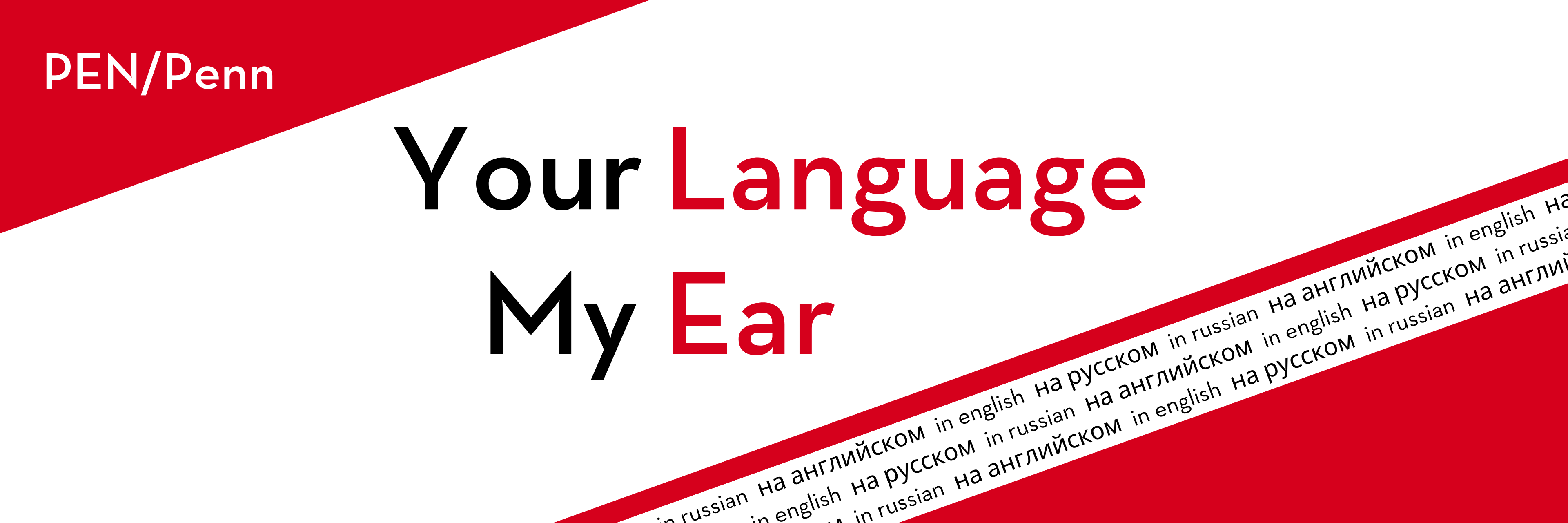 Expert Group: Polina Barskova • Mark Lipovetsky • Lev Oborin • Kevin M. F. Platt • Polina Sadovskaya • Alexander Skidan • Matvei Yankelevich
Expert Group: Polina Barskova • Mark Lipovetsky • Lev Oborin • Kevin M. F. Platt • Polina Sadovskaya • Alexander Skidan • Matvei Yankelevich
Read about Your Language My Ear »
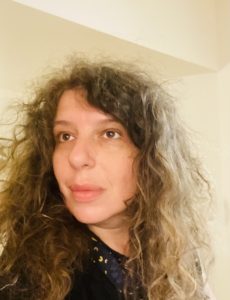 Polina Barskova (Berkeley, California, United States) is a poet, scholar, and author of 12 collections of poems and two books of prose in Russian. She has also authored a monograph Besieged Leningrad: Aesthetic Responses to Urban Disaster (2017) and edited three scholarly volumes. Her collection of creative nonfiction, Living Pictures, received the Andrei Bely Prize in 2015, was published in German with Suhrkamp Verlag, and was published in English with New York Review Books. She edited the Leningrad Siege poetry anthology Written in the Dark (Ugly Duckling Presse) and has four collections of poetry published in English translation: This Lamentable City (Tupelo Press), The Zoo in Winter (Melville House), Relocations (Zephyr Press), and Air Raid (forthcoming with Ugly Duckling Presse). She has taught at Hampshire College, Amherst College, and Smith College. In 2021, she began teaching Russian literature at the University of California, Berkeley.
Polina Barskova (Berkeley, California, United States) is a poet, scholar, and author of 12 collections of poems and two books of prose in Russian. She has also authored a monograph Besieged Leningrad: Aesthetic Responses to Urban Disaster (2017) and edited three scholarly volumes. Her collection of creative nonfiction, Living Pictures, received the Andrei Bely Prize in 2015, was published in German with Suhrkamp Verlag, and was published in English with New York Review Books. She edited the Leningrad Siege poetry anthology Written in the Dark (Ugly Duckling Presse) and has four collections of poetry published in English translation: This Lamentable City (Tupelo Press), The Zoo in Winter (Melville House), Relocations (Zephyr Press), and Air Raid (forthcoming with Ugly Duckling Presse). She has taught at Hampshire College, Amherst College, and Smith College. In 2021, she began teaching Russian literature at the University of California, Berkeley.
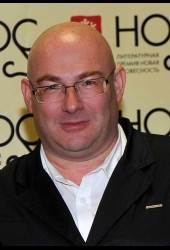 Mark Lipovetsky (New York City, United States) is Professor of Slavic Languages at Columbia University. His research interests include such subjects as post-Soviet culture, Russian postmodernism, post-Soviet drama, late Soviet nonconformist culture, tricksters in Soviet culture. Lipovetsky edited 5-volumes of Dmitry Prigov’s collected works and currently is working on his critical biography. In 2014, Lipovetsky received an award of the American Association of Teachers of Slavic and East European Languages for the outstanding contribution to scholarship. In 2019, Lipovetsky has been awarded the Andrei Belyi Prize for his service to Russian literature. A History of Russian Literature (Oxford, 2018) that Lipovetsky co-authored, received the Honorable Mention from the MLA Aldo and Jeanne Scaglione Prize for Studies in Slavic Languages and Literatures. Currently, Lipovetsky is leading the international project dedicated to the Soviet cultural underground; The Oxford Handbook of Soviet Underground culture is expected to be published in 2023.
Mark Lipovetsky (New York City, United States) is Professor of Slavic Languages at Columbia University. His research interests include such subjects as post-Soviet culture, Russian postmodernism, post-Soviet drama, late Soviet nonconformist culture, tricksters in Soviet culture. Lipovetsky edited 5-volumes of Dmitry Prigov’s collected works and currently is working on his critical biography. In 2014, Lipovetsky received an award of the American Association of Teachers of Slavic and East European Languages for the outstanding contribution to scholarship. In 2019, Lipovetsky has been awarded the Andrei Belyi Prize for his service to Russian literature. A History of Russian Literature (Oxford, 2018) that Lipovetsky co-authored, received the Honorable Mention from the MLA Aldo and Jeanne Scaglione Prize for Studies in Slavic Languages and Literatures. Currently, Lipovetsky is leading the international project dedicated to the Soviet cultural underground; The Oxford Handbook of Soviet Underground culture is expected to be published in 2023.
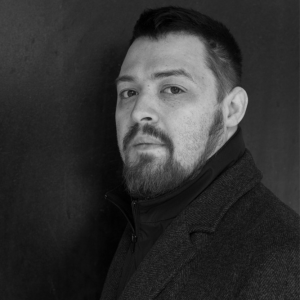 Lev Oborin (Yerevan, Armenia) is a poet, translator, and literary critic. He authored five books of poetry and a children’s book. His poems and articles have been published in various outlets in Russia and abroad, such as Poetry, Poem, Harriman Magazine, International Poetry Review, Novy Mir, Znamia, Vozdukh, Colta.ru, and Gorky.media. He works as an editor for Polka, a website dedicated to Russian literature, and edits a nonfiction series on everyday culture at the New Literary Observer. Oborin has translated several books, including David Remnick’s Lenin’s Tomb and he has translated poetry by Robert Frost, Denise Duhamel, Charles Simic, John Ashbery, Yumlembam Ibomcha Singh, Czesław Miłosz, Tadeusz Różewicz, Justyna Bargielska, and others. Oborin is a winner of Andrei Bely Prize for his criticism (2021), the Parabola Prize for young authors (2019), and the Znamya magazine’s literary award (2010). He has participated in many literary festivals and activities in Russia and other countries, including the United States, the United Kingdom, Poland, Ukraine, and Latvia. Lev Oborin participated in the Expert Group in 2022.
Lev Oborin (Yerevan, Armenia) is a poet, translator, and literary critic. He authored five books of poetry and a children’s book. His poems and articles have been published in various outlets in Russia and abroad, such as Poetry, Poem, Harriman Magazine, International Poetry Review, Novy Mir, Znamia, Vozdukh, Colta.ru, and Gorky.media. He works as an editor for Polka, a website dedicated to Russian literature, and edits a nonfiction series on everyday culture at the New Literary Observer. Oborin has translated several books, including David Remnick’s Lenin’s Tomb and he has translated poetry by Robert Frost, Denise Duhamel, Charles Simic, John Ashbery, Yumlembam Ibomcha Singh, Czesław Miłosz, Tadeusz Różewicz, Justyna Bargielska, and others. Oborin is a winner of Andrei Bely Prize for his criticism (2021), the Parabola Prize for young authors (2019), and the Znamya magazine’s literary award (2010). He has participated in many literary festivals and activities in Russia and other countries, including the United States, the United Kingdom, Poland, Ukraine, and Latvia. Lev Oborin participated in the Expert Group in 2022.
 Kevin M.F. Platt (Philadelphia, United States) is a professor of Russian and East European studies at the University of Pennsylvania. His scholarly work focuses on Russian and East European poetry, culture, and history and global socialist culture. His translations of Russian poetry have appeared in World Literature Today, Jacket2, n+1, Fence, and other journals. He is the author or editor of several scholarly books, the most recent of which is Global Russian Cultures (University of Wisconsin Press, 2019). He has also edited and contributed translations to a number of books of Russian poetry in English translation, most recently Verses on the Vanguard: Russian Poetry Today (Deep Vellum, 2021), F Letter: New Russian Feminist Poetry (Isolarii, 2020), and Orbita: The Project (Arc Publications, 2018). His new book, Border Conditions: Russian-Speaking Latvians Between World Orders, is forthcoming from Cornell University/Northern Illinois University Press.
Kevin M.F. Platt (Philadelphia, United States) is a professor of Russian and East European studies at the University of Pennsylvania. His scholarly work focuses on Russian and East European poetry, culture, and history and global socialist culture. His translations of Russian poetry have appeared in World Literature Today, Jacket2, n+1, Fence, and other journals. He is the author or editor of several scholarly books, the most recent of which is Global Russian Cultures (University of Wisconsin Press, 2019). He has also edited and contributed translations to a number of books of Russian poetry in English translation, most recently Verses on the Vanguard: Russian Poetry Today (Deep Vellum, 2021), F Letter: New Russian Feminist Poetry (Isolarii, 2020), and Orbita: The Project (Arc Publications, 2018). His new book, Border Conditions: Russian-Speaking Latvians Between World Orders, is forthcoming from Cornell University/Northern Illinois University Press.
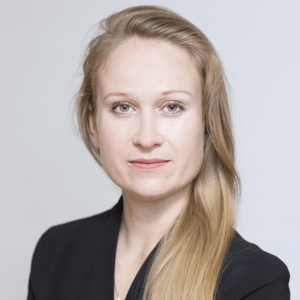 Polina Sadovskaya Ph.D., (Tbilisi, Georgia) joined the PEN America team in 2016 as the first Free Expression Programs coordinator for Eurasia. She came to New York from Paris, where she was with UNESCO’s Division of Freedom of Expression and Media Development. She organized various international and global forums, and managed a project empowering local communities in Africa with radio and new digital technologies. She is an active supporter of women’s and youth’s rights around the world, and is a member of the IFEX Council. Prior to joining PEN America, Sadovskaya worked for Habitat Pro Association, an NGO advocating for the rights of indigenous peoples in Peru, particularly those of indigenous women and youth. She was also a radio correspondent for a national radio, and a marketing and communications manager with a major bank in her native Russia. She is fluent in Russian, French, and English, and has degrees in marketing from Grenoble Graduate School of Business and in journalism from South Ural State University.
Polina Sadovskaya Ph.D., (Tbilisi, Georgia) joined the PEN America team in 2016 as the first Free Expression Programs coordinator for Eurasia. She came to New York from Paris, where she was with UNESCO’s Division of Freedom of Expression and Media Development. She organized various international and global forums, and managed a project empowering local communities in Africa with radio and new digital technologies. She is an active supporter of women’s and youth’s rights around the world, and is a member of the IFEX Council. Prior to joining PEN America, Sadovskaya worked for Habitat Pro Association, an NGO advocating for the rights of indigenous peoples in Peru, particularly those of indigenous women and youth. She was also a radio correspondent for a national radio, and a marketing and communications manager with a major bank in her native Russia. She is fluent in Russian, French, and English, and has degrees in marketing from Grenoble Graduate School of Business and in journalism from South Ural State University.
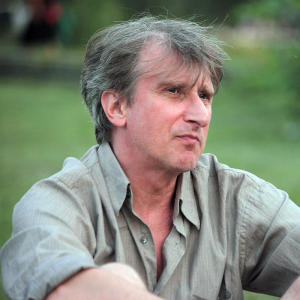 Alexander Skidan (St. Petersburg, Russia) was born in Leningrad in 1965. He is a poet, critic, essayist, and translator. He is also the author of more than 10 books. including the collection of verses Contamination (2020) and the book Lit.ra: selected FB notes (2013-2020). He has translated contemporary American poetry and prose, as well as theoretical works on literature and art. He was the winner of the 2006 Andrei Bely Prize, and a recipient of the 2018 Joseph Brodsky Fellowship Fund. His poetry has been translated into multiple languages and included in several anthologies. In 2008, Ugly Duckling Presse released his bilingual book Red Shifting, and in 2020, it released his essay “Golem Soveticus: Prigov as Brecht and Warhol in One Persona.” He is a member of the working group “What is to be done?”. He is also the editor of the “Practice” section of the New Literary Review. He lives in Saint Petersburg.
Alexander Skidan (St. Petersburg, Russia) was born in Leningrad in 1965. He is a poet, critic, essayist, and translator. He is also the author of more than 10 books. including the collection of verses Contamination (2020) and the book Lit.ra: selected FB notes (2013-2020). He has translated contemporary American poetry and prose, as well as theoretical works on literature and art. He was the winner of the 2006 Andrei Bely Prize, and a recipient of the 2018 Joseph Brodsky Fellowship Fund. His poetry has been translated into multiple languages and included in several anthologies. In 2008, Ugly Duckling Presse released his bilingual book Red Shifting, and in 2020, it released his essay “Golem Soveticus: Prigov as Brecht and Warhol in One Persona.” He is a member of the working group “What is to be done?”. He is also the editor of the “Practice” section of the New Literary Review. He lives in Saint Petersburg.
 Matvei Yankelevich is a poet, translator, and editor whose books include Dead Winter (Fonograf), Some Worlds for Dr. Vogt (Black Square), Boris by the Sea (Octopus), and Today I Wrote Nothing: The Selected Writings of Daniil Kharms (Overlook). In the 1990s, he co-founded Ugly Duckling Presse, where he produced a variety of books, chapbooks, periodicals, and broadsides, and curated the Eastern European Poets Series. As of 2022, he is editor-in-chief of World Poetry Books, a nonprofit publisher of poetry in translation, and has recently launched Winter Editions, a literary small press of his own. He teaches translation at Columbia University’s School of the Arts. Matvei Yankelevich participated in the Expert Group in 2023.
Matvei Yankelevich is a poet, translator, and editor whose books include Dead Winter (Fonograf), Some Worlds for Dr. Vogt (Black Square), Boris by the Sea (Octopus), and Today I Wrote Nothing: The Selected Writings of Daniil Kharms (Overlook). In the 1990s, he co-founded Ugly Duckling Presse, where he produced a variety of books, chapbooks, periodicals, and broadsides, and curated the Eastern European Poets Series. As of 2022, he is editor-in-chief of World Poetry Books, a nonprofit publisher of poetry in translation, and has recently launched Winter Editions, a literary small press of his own. He teaches translation at Columbia University’s School of the Arts. Matvei Yankelevich participated in the Expert Group in 2023.
Jump to: Read about Your Language My Ear | Meet the 2023 Participants | Meet the 2022 Participants | Meet the Expert Group (top)

